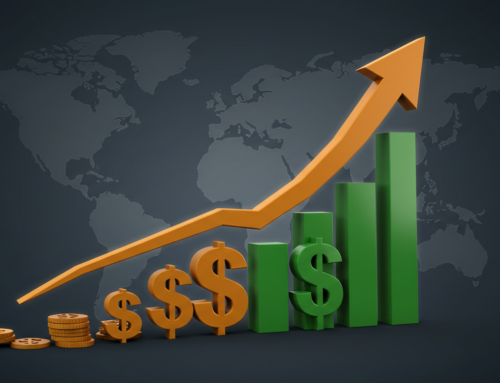You can’t open a copy of the Wall Street Journal (or any other business publication) without being greeted with plenty of news about Mergers and Acquisitions (M&A). Reporting on the latest deals and exploring how well (or how poorly) mergers have worked out are the bread and butter of every business reporter. But while megamergers like Dish Network and EchoStar grab headlines, small and medium businesses also engage in M&A deals daily.
How to value a business to sell?
Business owners often ask my firm Sofer Advisors, “Do I need a business valuation to sell my company?” The answer is a resounding yes. Whether you are selling your business, buying another company, or merging—a valuation is critical to the process.
Even so, the business valuation of a company for sale can present a complex challenge. Why? The emotions involved. The typical entrepreneur or business owner has invested their blood, sweat, and yes, tears, into their baby—not to mention, their money. Therefore, a seller almost always has a higher valuation in mind than a buyer.
To further apprehend why, we can turn to the world of psychology. But no need to worry. We’re not going into Sigmund Freud’s theories…
First, consider this analogy. Practically no parent wants to admit their baby is ugly. One mom even went viral on social media with a shocking “ugly baby challenge” video. Most parents instead believe their offspring is beautiful, the most special thing in their life. Such thinking makes sense with a child. It also makes sense with companies when we realize a business holds a similar (emotional) spot in its owner’s heart. The psychology behind this has a name: The Endowment Effect.
In short, the endowment effect states an owner selling their business— likely to be their prized possession—finds value in the emotional attachment to their company the typical buyer isn’t likely to appreciate. In fact, it often pains sellers to realize buyers don’t value the same thing they do.
Behavioral economist Dr. Dan Ariely explains the phenomenon this way: “We don’t want to give up what we own partly because we overvalue it, and we overvalue it partly because we don’t want to give it up.” This isn’t a new facet of human nature either. Aristotle observed that, “For most things are differently valued by those who have them and by those who wish to get them: what belongs to us, and what we give away, always seems very precious to us.”
To illustrate The Endowment Effect in action, I want to share an example, not from Wall Street or the corridors of corporate power, but rather from the most cutthroat marketplace in the world—Craigslist.
Despite its low-tech look and feel, Craigslist remains one of the best tools for modern treasure hunters seeking great deals. When my sister Rebecca upsized from a smaller condo to a bigger home, she turned to Craigslist as a way to find great deals on furnishings.
Being the helpful brother I am, I tagged along on trips into unfamiliar neighborhoods to help her buy (and transport) beautiful and unique furniture pieces she’d never find in a typical retail store. Now, you should know Rebecca likes to haggle, especially with Craigslist deals. The last stop of our trip is where we witnessed The Endowment Effect when it comes to such haggling.
How much is my business worth if I sell it?
That day, Rebecca greeted a seller named Jackson, who she hoped to buy a desk from. The desk was a handsome piece. It had obviously been built with significant attention to detail. Rebecca wanted to put it in her home office—but only at the right price.
Jackson listed the desk for $800 but this was beyond her limit.
“I love this piece,” she told him. “It’s just what I need. But not at your price. I’ve got $500 if you can come down to meet me.”
Jackson shook his head. “Sorry. I just can’t. I’m firm on the $800.”
His answer surprised me. Though it wasn’t my deal, and I was simply there to support my sister, the “inner valuator” in me emerged. I wanted to know why such a significant gap existed—why he wouldn’t budge on price.
“It is a very nice desk. Can you explain how you came to the $800 value?” I asked.
Jackson got a faraway look in his eye as he considered my question. “I built this for my wife with my own two hands. For years, she ran our home office from it. She just passed away last year from cancer. I’m trying to find a good home for the desk because it meant so much to her.”
After sharing our sympathies for his loss, I huddled with my sister. Minutes later Rebecca came back to share the plan we developed. “Jackson,” she said. “I do love the piece and it will go to a good home where it will be valued. What I’d like to offer is the same $500 for the desk, with an additional $150 as a donation in your family’s name to the cancer charity of your choice.”
A change came over Jackson.
It seemed as if a weight lifted off his shoulders. Immediately, he stuck his hand out to shake. “I really believe my wife would approve of that. I appreciate you understanding why this means so much to me.”
In the end, my sister got the desk she wanted so much and Jackson got a deal that overcame The Endowment Effect. Everyone came away happy thanks to the understanding that sellers often apply a different psychology to value than buyers. It’s critical than business owners understand this concept when it comes to their own M&A activity.
Ultimately, the key to a proper business valuation in an any M&A deal is to maintain accuracy while also seeking to understand the interests and intangibles on all sides. Our team of valuation experts are experts at both. We deftly navigate The Endowment Effect when valuing companies for sale or merger, producing valuations that are fair for every stakeholder.
If you are considering buying or selling a business, please schedule a call to Sofer Advisors today to ensure you strike the right deal. We’d be happy to help with a complimentary consultation.
David Hern is the founder and chief executive officer of Sofer Advisors, LLC focusing on business advisory services related to litigation assistance, estate and tax planning, and business enterprise valuations for various privately-held and public companies. He is a qualified financial analyst with a proven ability to simply and clearly communicate analysis to boards of directors, presidents and CEOs, CFOs, controllers and private equity portfolio managers. David has been recognized for enabling organizations to determine their enterprise and equity value for a variety of situations including strategic planning, sale or IPO, mergers and acquisitions, financial reporting (common stock, stock options grants, purchase price allocations, impairment analyses, etc.) and tax compliance (estate & gift, 409A, NUBIG). Industry experience includes, but is not limited to, professional services, business service, healthcare, information technology, financial services, and manufacturing & distribution.







